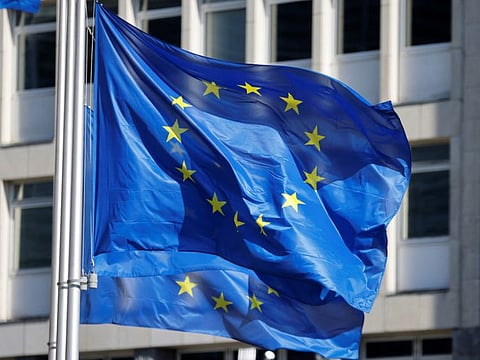EU draft fast-tracks five clean sectors for shift to net zero
Europe is seeking a response to US green subsidies passed under President Joe Biden

Paris: The European Union plans to prioritize the growth of five clean technologies “- from solar energy to hydrogen “- to meet its emissions-reduction goals and stave off competition from the US and China in the race toward a climate-neutral economy.
The European Commission, the bloc’s regulatory arm, wants to accelerate permitting procedures for key projects and is considering setting a 2030 target for the net-zero technology manufacturing capacity to be sufficient to meet at least 40 per cent of the region’s annual deployment needs, according to a draft document seen by Bloomberg News. The headline target includes specific goals for the photovoltaic sector, wind turbines, heat pumps, batteries and electrolyzer production.
The proposed Net Zero Industry Act would seek to redirect part of national government revenues from the EU’s carbon market to meet the climate goal and ensure supply security for green technologies, according to the draft.
Europe is seeking a response to US green subsidies passed under President Joe Biden, including easing the burden on companies and barriers to investment.
Net Zero Industry Act
The 27-country EU is seeking to retain its position in global trade after an unprecedented energy crisis that pushed power prices to records after Russia cut gas supplies to Europe. Gas prices are seven times higher on the continent than in the US, while electricity prices are three times higher than in China, according to the International Energy Agency.
The commission has a policy of not commenting on draft legislation. The document, due to be unveiled in mid-March, may still change before publication.
The list of clean technologies was criticized by the aviation industry, which will also need to cut emissions under EU climate goals. The Aviation for Europe association said it was “alarming” that sustainable aviation fuels were excluded from the draft.
“The Net Zero Industry Act is a once in a generation opportunity that will have ramifications for generations to come,” said acting managing director Laurent Donceel. “We cannot have a situation where the US rolls out the red carpet for sustainable aviation fuels producers while Europe rolls out nothing but red tape.”
To promote investment, the planned regulation would include setting the status of net-zero resilience projects, which would benefit from fast-track permitting procedures. Member states would also be able to designate special clean-tech valleys and hydrogen valleys in regions particularly suited for construction or expansion of manufacturing.



